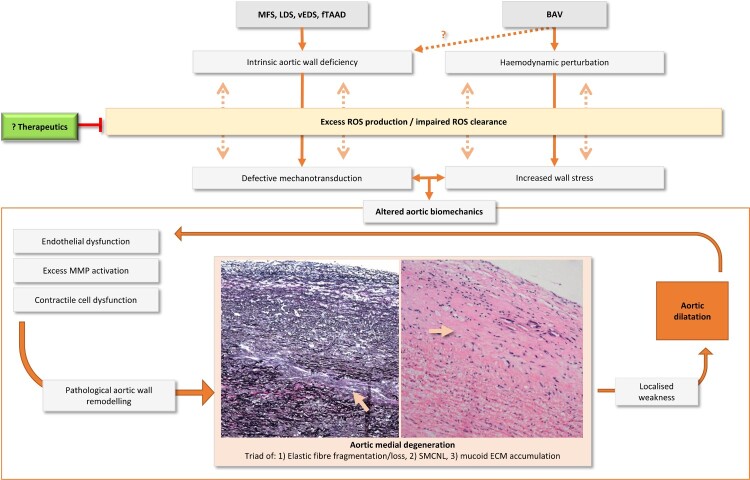Figure 1.
Unanswered questions concerning the role of oxidative stress in genetically triggered TAA pathogenesis. The relationship between oxidative stress and TAA development is likely due to altered aortic biomechanics, specifically due to intrinsic deficiencies in the aortic wall as in MFS, LDS, vEDS and fTAAD, or elevated wall stresses from turbulent flow as in BAV. Each render the aorta unable to adapt and instead undergo pathological remodelling leading to aneurysm formation. The specific contributions of redox pathway mediators to both oxidative stress and TAA pathogenesis are unknown. Therapeutics that can restore redox homeostasis may present a novel strategy to halt or reverse TAA development. MFS, Marfan syndrome; Loeys-Dietz syndrome; vEDS, vascular Ehlers Danlos syndrome; fTAAD, familial thoracic aortic aneurysm and dissection; BAV, bicuspid aortic valve; MMP, matrix metalloproteinase; SMCNL, smooth muscle cell nuclei loss; ECM, extracellular matrix.

